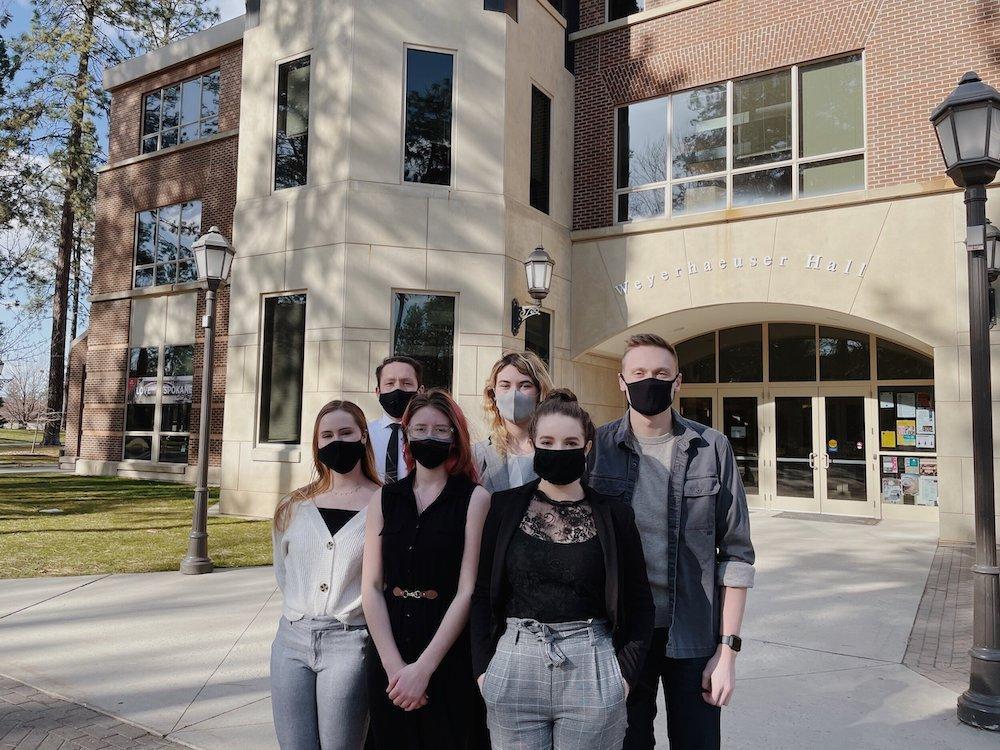by Rachel Wilson
When most people picture a modern-day freedom fighter, they probably don’t picture a 5-foot-1, 89-year-old judge. However, a hero for many fits that exact description: Ruth Bader Ginsburg.
The Supreme Court Justice was known for her powerful dissents and endless tenacity. She battled and eventually overcame five separate bouts of cancer. Along the way, Ginsburg became one of the biggest celebrities in politics. The intense iconography of the late Justice can be seen everywhere, from her famous workout routine, to “I dissent” merchandising, to a dramatic biopic starring Felicity Jones.
Idolizing political figures can be dangerous, though.
In 2016, during an interview for The New York Times, Ginsburg denounced Colin Kaepernick’s famous decision to kneel during the national anthem, criticizing it as “dumb and disrespectful.” A week later, Ginsburg apologized, saying that she was “barely aware of the incident or its purpose” and that her comments were “inappropriately dismissive and harsh.”
This admittance of complete ignorance shows the danger of strong opinions from powerful people. As one of the most notable Supreme Court justices, Ginsburg had an incredible effect on public opinion, and this statement had the power to do an incredible harm to the movement Kaepernick was attempting to bolster.
Some people in this country have the power to completely rewrite law and change public opinion. When these individuals blunder, a simple apology isn’t enough. As millions tweet their mourning for RBG, many are shocked that so many of our rights have rested on the shoulders of a single woman. Does one person possessing this much power not suggest a serious issue?
The United States is quickly becoming more politically engaged and aware. Mainstream consciousness of corruption within government institutions has increased, due to issues such as accusations of mass hysterectomies in ICE detention facilities, unjust police immunity, or possible tax evasion committed by President Donald Trump. As such, the public has a responsibility to understand the complicated implications of decisions from powerful government institutions, both good and bad.
The time is now to abandon political celebrity and to hold leaders accountable. Praising politicians for doing the right thing, or for merely acknowledging mistakes that could impact human lives, is unhelpful. Wealth power, and special interest ties in government can lead to decision-making that does not keep the average person in mind. The people need to hold government officials accountable for the harm that they cause. A better future is possible when citizens fight wrongdoing, rather than overlooking it.
The legacy of RBG – namely her incredible fight for gender equality – isn’t to be overlooked either. According to Davidson College associate professor Andrew O’Geen, an expert on the dynamics of the Supreme Court, her impact on young people was tremendous. He said, “For younger folks, who may not be familiar with her advocacy and her direct role in shaping women’s rights, they will likely remember her for her powerful dissents and for her quiet strength and determination.”
Ginsburg was undoubtedly an inspiration to many young people, encouraging them to become passionate about justice and equality.
However, when political figures become celebrities, the general public can often become complacent with systems that harm them. Women’s rights, healthcare access, and marriage equality are all in jeopardy because of one person’s death. This is unacceptable. The American political system is meant to protect the people, yet they are separated by multiple degrees from the appointment of Supreme Court justices. The loss of Ruth Bader Ginsburg shows that so many liberties should not be held on such a thin string: the power should go to the people.











